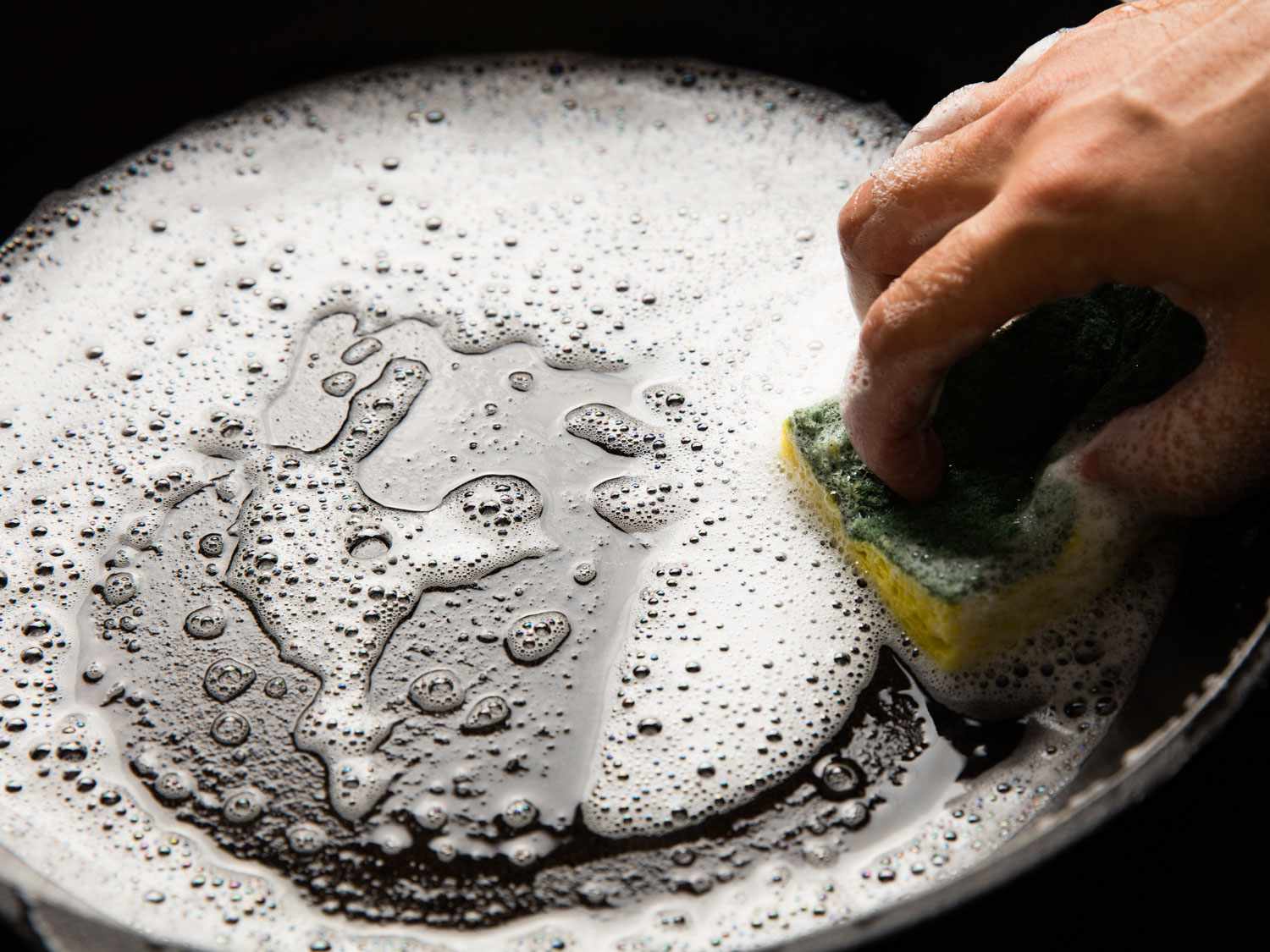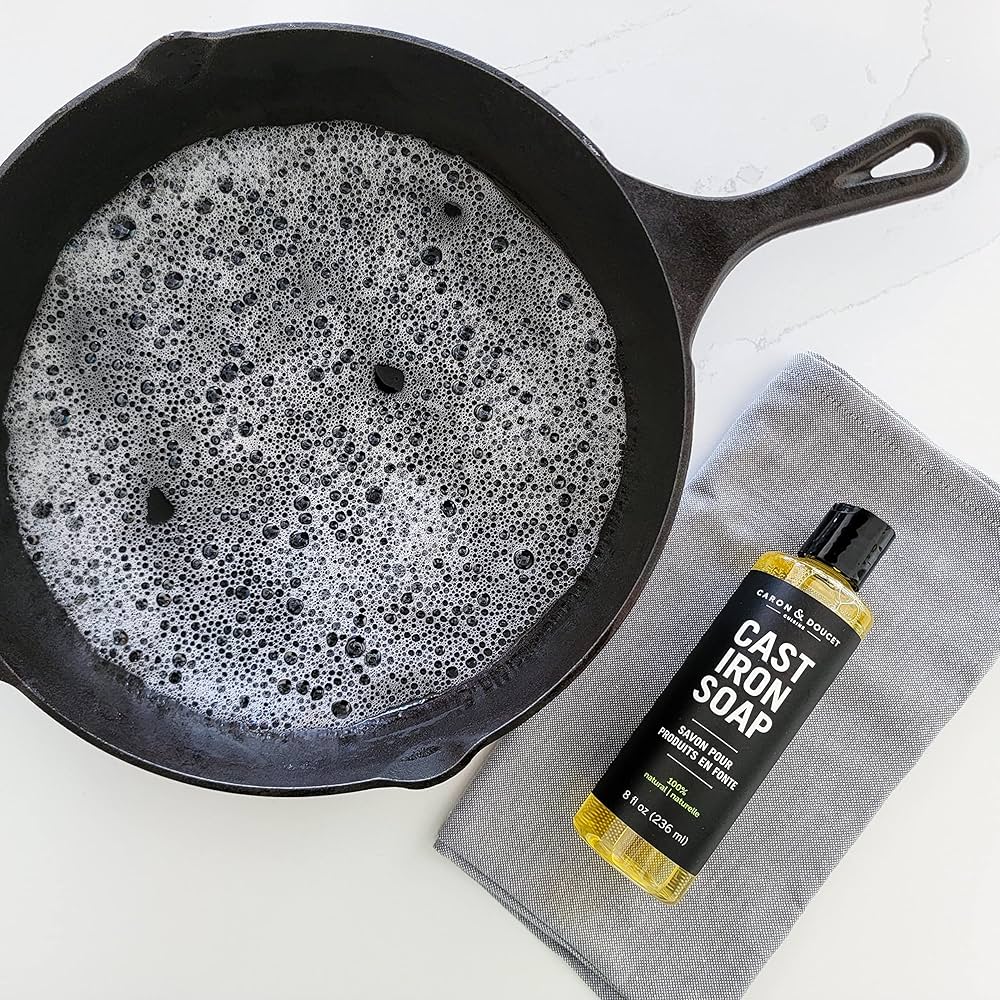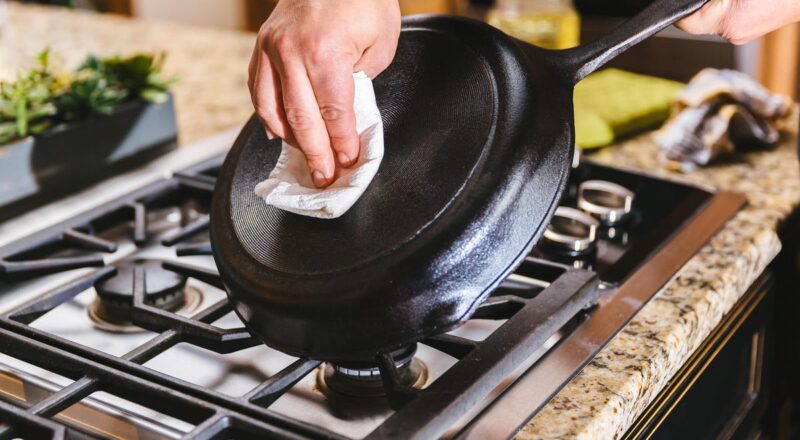Cast iron cookware is treasured for its durability and excellent heat retention, making it a favorite among cooking enthusiasts. However, cast iron is prone to rust if not properly maintained. While vinegar is a popular rust removal method, some people prefer alternatives due to its strong odor. This article explores how to remove rust from cast iron without vinegar, ensuring your cookware stays clean and functional.

Why Avoid Vinegar?
Vinegar is an acid, and while it is effective at removing rust, prolonged exposure can harm the seasoning of your cast iron cookware. Additionally, not everyone enjoys the strong smell of vinegar lingering on their pots and pans. So, what are some rust removal methods that don’t involve vinegar?

Supplies You’ll Need
- Baking soda
- Lemon juice
- Coarse salt
- Potato
- Steel wool or brush
- Dish soap
- Paper towels
- Cooking oil

Method 1: Baking Soda and Lemon Juice
Step 1: Create a Paste
Combine baking soda and lemon juice in a bowl to form a paste. The mixture should be thick enough to adhere to the rusted areas of your cast iron cookware.
Step 2: Apply the Paste
Using a sponge or your fingers, apply the paste to the rusted areas. Make sure the rust is thoroughly covered.
Step 3: Scrub the Rust
Use steel wool or a brush to scrub the paste into the rust. The abrasive action of the baking soda combined with the acidity of the lemon juice should help lift the rust away.
Step 4: Rinse and Dry
Rinse the cast iron under warm water and dry it completely with paper towels. Make sure to remove all moisture to prevent new rust from forming.

Method 2: Coarse Salt and Potato
Step 1: Sprinkle Salt
Generously sprinkle coarse salt over the rusted areas of your cast iron cookware. The salt will act as a gentle abrasive to help loosen the rust.
Step 2: Scrub with a Potato
Cut a potato in half and use the cut side to scrub the salt into the rust. Potatoes contain oxalic acid, which can help break down rust without harming your cookware.
Step 3: Rinse and Dry
Rinse the cast iron under warm water and dry completely with paper towels. Ensure all moisture is removed to prevent future rust.
Method 3: Seasoning After Rust Removal
After removing the rust, it’s essential to reseason your cast iron cookware to protect it and improve its non-stick properties.
Step 1: Preheat Your Oven
Preheat your oven to 350F (175C).
Step 2: Apply a Thin Layer of Oil
Using a paper towel, apply a thin layer of cooking oil to the surface of your cast iron cookware. Make sure to cover the entire surface, including the handle.
Step 3: Bake
Place the cast iron cookware upside down in the oven with a sheet of aluminum foil on the rack below to catch any drips. Bake for one hour.
Step 4: Cool Down
Allow the cookware to cool completely in the oven. This process will create a protective layer that helps prevent rust and improves the cookware’s non-stick properties.
Proper Care to Prevent Rust
Preventing rust on your cast iron cookware is as important as removing it. Here are some tips to help you keep your cast iron in top condition:
- Always dry your cast iron thoroughly after washing.
- Store your cast iron in a dry place to avoid moisture buildup.
- Regularly reapply a thin layer of oil to maintain the seasoning.
- Avoid soaking your cast iron for prolonged periods.
Frequently Asked Questions
Can I use other acids instead of vinegar to remove rust?
Yes, you can use lemon juice as a substitute. It is less harsh than vinegar and has a more pleasant scent.
How often should I reseason my cast iron cookware?
It’s a good practice to reseason your cast iron after every few uses, especially if you notice it losing its non-stick properties.
What oils are best for seasoning cast iron?
Vegetable oil, canola oil, and flaxseed oil are popular choices for seasoning cast iron cookware due to their high smoke points and affordability.
For more information on reseasoning your cast iron, you can visit this cast iron reseasoning guide. Also, learn how to cook hash browns using a cast iron skillet from this guide.
As an Amazon Associate, I earn from qualifying purchases.
As an Amazon Associate, I earn from qualifying purchases.

